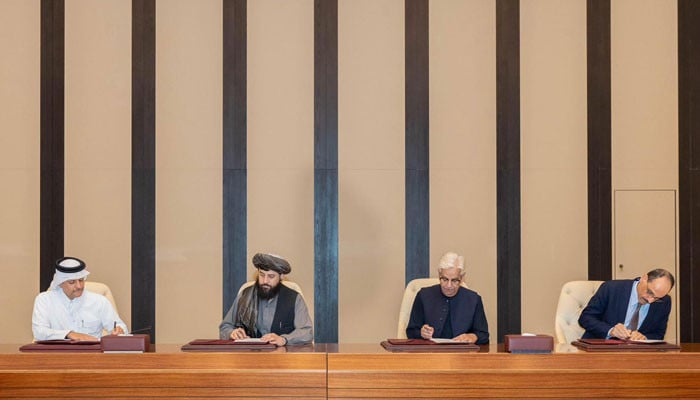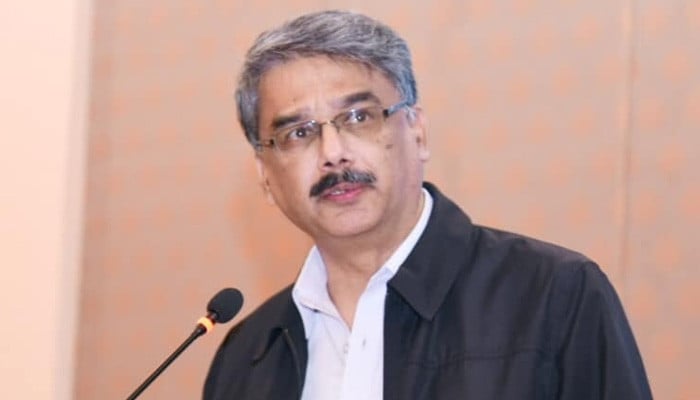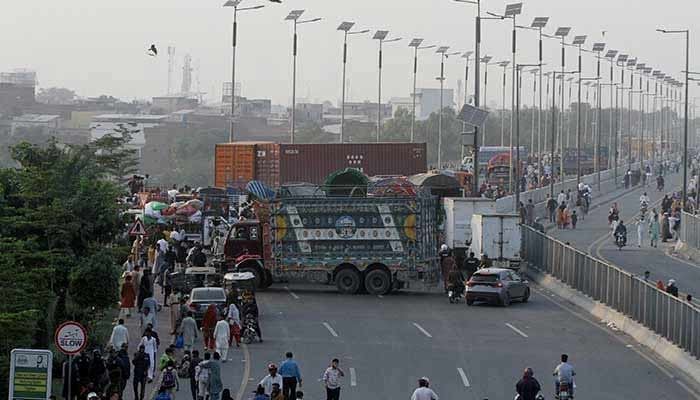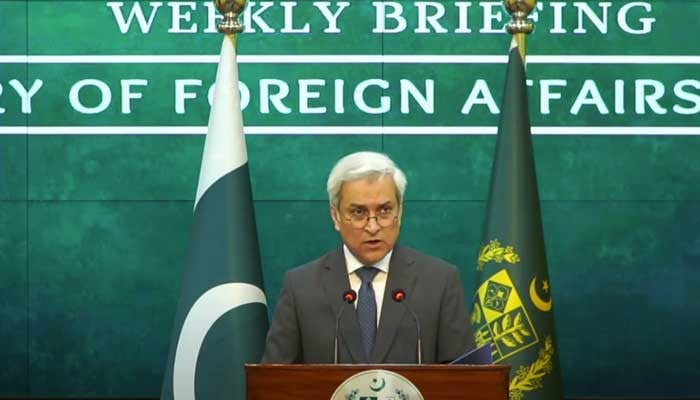
Defence Minister Khawaja Asif (centre right) and his Afghan counterpart Mullah Yaqoob (centre left) sign ceasefire agreement between after talks in Doha, Qatar on Sunday, October 19, 2025. — X/@MofaQatar_EN
#Istanbul #Pakistan #Afghan #Taliban #detailed #plan #curb #crossborder #terror
Sources said that Pakistan has presented a detailed counter-terrorism plan to the Afghan Taliban as the second round of talks between the two sides wraps up.
Saturday’s talks in Istanbul are part of Islamabad’s efforts to establish a mechanism to prevent cross-border terrorism originating from Afghan soil.
The Istanbul Round follows earlier Pakistan-Afghanistan talks—brokered by Qatar and Turkey—held in Doha on October 19, where both sides agreed to a ceasefire, although border trade is suspended. The Afghan delegation is led by Deputy Interior Minister Rahmatullah Mujib.
During his weekly press briefing on Friday, Foreign Office Spokesperson Tahir Hussain Anderbi said that Pakistan is looking forward to establishing a robust and verifiable monitoring mechanism in Istanbul to deal with the threat of terrorism emanating from Afghan soil towards Islamabad.
“As a responsible state committed to regional peace and stability, Pakistan does not escalate but urges the Afghan Taliban authorities to honor their commitment to the international community and address Pakistan’s legitimate security concerns by taking verifiable action against terrorist organizations including the FEC/TTP and FAH/Billah,” he added.
The spokesperson of the Foreign Office also termed the first round as the first step to ensure regional peace and stability. He said that the Doha talks focused on immediate steps to eliminate cross-border terrorism against Pakistan originating from Afghanistan and to restore peace and stability along the Pakistan-Afghanistan border.
Responding to a question, Andrabi said that Pakistan had not experienced any large-scale terrorist attack from Afghan soil in the last two to three days, calling it a fruitful outcome of the first round.
A Foreign Office spokesman said the border crossing with Afghanistan would remain closed, citing the security situation, stressing that saving the life of an ordinary Pakistani was more important than the movement of goods or trade.
‘All-out war if talks fail’
Defense Minister Khawaja Asif, who had previously expressed cautious optimism about the peace deal, warned of an “all-out war” with the Afghan Taliban government if talks failed.
Speaking to reporters in Sialkot, he expressed hope that the outcome of the talks would be known about tomorrow, if not today.
The defense minister noted that there had been no hostilities along the border in the last four to five days, adding that 80 percent of the points between the two countries were being implemented during the first round of talks in Doha.
Asif attacked India for waging a proxy war against Pakistan using the Afghan Taliban. “Afghans are working against us as proxies of India.”
The minister expressed hope that the two countries would agree to an agreement that would ensure long-lasting peace in the region.
Recalling the first round of talks, in which he led the Pakistani delegation, the defense minister said he felt the desire for peace during the talks.
However, he lamented that Afghans supported terrorism in Pakistan despite the country hosting them for more than four decades.
The border crossing between the two countries has been closed since October 11, following clashes earlier this month that killed dozens on both sides in the worst fighting since the Taliban’s 2021 takeover of Kabul.
The border skirmishes erupted after Islamabad demanded that they control militants who attack Pakistan along their shared border, saying they operate from sanctuaries in Afghanistan.
A ceasefire was agreed at talks hosted by Qatar and Turkey last weekend and is holding between the two sides, but border trade remains suspended.



